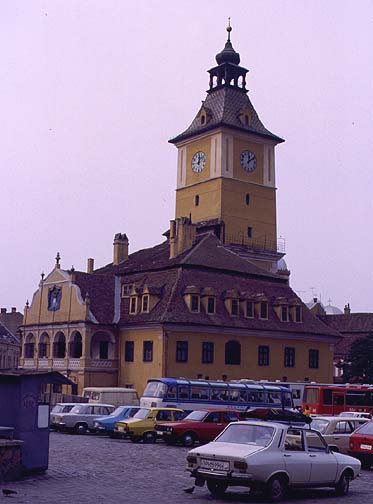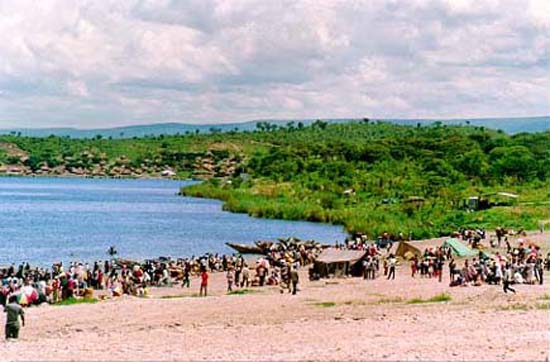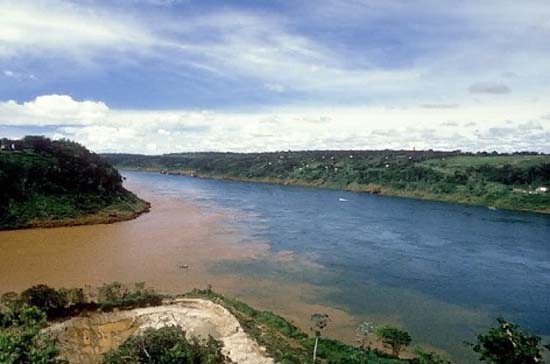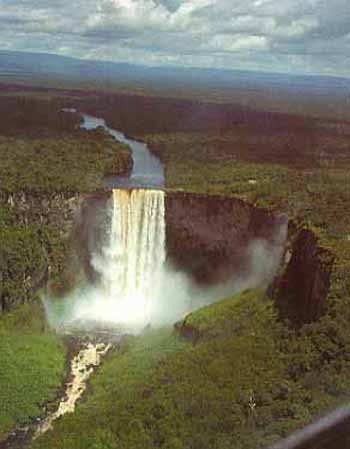
Ambassadors to far away nations work in Romania, Zambia, Paraguay and Guyana
Ambassadors to far away nations
Vail youths give back to those in need - 12/19/03
Tom Boyd
They will be a world away from their families this Christmas, and New Year’s, and the Christmas and New Year’s to come. They have traveled to the far corners of the globe – to Africa, Romania, Paraguay and Guyana – and they have volunteered to spend two years of their lives improving the welfare of others.
For Trent Ruder, Amanda Tennant, David Gelvin and Brooke Franke, a childhood spent in the international culture of Vail’s Rocky Mountains has inspired a desire to give back as much as possible to the people of the world, and bring home untold lessons learned from life in the Peace Corps.
With 6 to 10 months under their belts, Vail’s four young Peace Corps volunteers are already very connected and very passionate about the countries they now call home.
“I cannot really convey to you how much I want to have this country’s story told and understood,” says Trent Ruder, a graduate of the Vail Mountain School who went on to Tufts University in Boston before joining the Corps 10 months ago and shipping out to Romania. “Or how much I feel we, as Americans and Vailites, can gain from understanding life here, or in developing countries in general. Romania is not just Dracula, nor gypsies, nor orphans – it is a place that deserves to be known and seen on its own. And the same goes for the Peace Corps experience.”
Ruder, who lives in the city of Alba Iulia, was certainly the easiest to contact for this story. His surroundings are comparatively modern, and his goals in Eastern Europe have him working with orphaned and abandoned children, the elderly or handicapped, and furthermore contributing to the growth of the socially and politically active Student’s League in Alba Iulia.
Ruder is able to use e-mail and a phone on a regular basis, although it’s clear that his situation is a world apart from his former life in Vail.
“I miss the air,” he writes. “Vail has the best air I’ve ever breathed and December air is Vail’s best. Clear nights under open skies with stars so bright and bold they look like someone shook a brush of white paint in the air – these sensations remain in my heart and soul.”
The immense distance between Ruder and his family is emphasized over the holidays, he writes, a sentiment echoed by his fellow Vail Corps members. But there is a certain sense of curiosity and interest in Romanian culture that runs like a thread through his thoughts.
“Romania is full of paradoxes,” he writes. “Months after living here I am still often baffled at where its core lies; what this country is about, what it loves, what it hates, and what it wants to be. Isn’t it hard to have a clear notion when you yourself are full of dualities, though? I stopped trying to distill and simplify a long time ago; now I observe and combine and synthesize. Answers are complicated …
He goes on to describe the results of his surrogate nation’s social and economic hardships.
“Daily I pass people in the street begging for food. A hard life is worn on the face and in the hands, and I see it every day. It does not work to pity those who are struggling, but rather to see them, try to understand them and what they are going through and to help let that motivate me through tough periods …
“By coming here under the guise of ‘development’ – which is to say helping this country – I realized there is a small trick in this generous offer, in that it presumes myself and my homeland know better that what is done here.
“To be honest, many times this is true, but others it is not. I have often questioned myself: ‘Why would it be that I know better than the people who live here how to make life better here? Am I not just bringing something developed on the outside – for the outside – into this country of complexities? Am I simply pretentious in doing so?
“The answer to these questions like many that come, is more complicated that it initially seems, but I have found it better to learn and understand as best as possible this country so as to not push or expect anything unnatural. This is why the Peace Corps’ combination of development work with cultural exchange is the correct formula. In the end, real development comes from within, within a country or within a person.
“The closer I have become to people I live and work with the more we are really able to make a meaningful difference in each other’s lives. I can only strive to be a bit of a spark for such development, and feel very fortunate and comfortable in the knowledge of those in my life here who provide me with that same spark for myself.”

Christmas in Zambia
The same themes coursed through Amanda Tennant’s words as she spoke to The Vail Trail from a dysfunctional phone in Zambia. Stuck without transportation in a larger city, Tennant found time to connect with her friends and family at home before heading back to her new home village of Ndundumwezi – hours away from phones, computers, electricity or other accoutrements of the modern world.
“(My post) is one of the only ones left where you live out in a village – no electricity, no running water – you really are way out in the bush with very little access to anything at all, and I think that’s really great,” Tennant says. “You would never get to experience this (without the Corps). Even if I chose to come live in Zambia on my own I would never live in a place like Ndundumwezi.
“The people are like, ‘What are you doing here? What is a white person doing here?’”
The answer westerners would understand, Tennant says, is that she’s there to try and convince the native population to grow new crops, diversify their diets, and therefore avoid hunger, disease, and possible starvation because corn, it seems, is nearly 100 percent of her village’s diet. “You never knew there were so many ways to eat corn,” she says. Tennant wants to teach the villagers to grow soybeans in order to increase the amount of protein in their diet.
But the villagers don’t think like westerners, she explains.
“They’re really perplexed as to what I’m doing there living in their village. And it’s hard to work there because people have to trust you. I’m getting more people to trust me but they’re still wondering what all these ideas I have are. It’s hard to get people to adjust to it because they’re poor and they have their certain way of doing things.
“But the people are very friendly here; I have people coming over to my house every day.”
Tennant is also part of a program that provides the $75 necessary to buy school uniforms and books for young Zambians who wish to go to school. One-hundred percent of the money gathered goes to the children and there is no marketing, publicity, or overhead costs in the program. Word of mouth and news articles are the only way to gather money for this program.
Tennant asks that interested parties contact her mother, Deborah, at (970) 476-8523.
In the meantime, Tennant says her Christmas will include plenty of quiet time (which isn’t in short supply in Ndundumwezi), and a meal with her new friends in the village. What’s on the menu?
“Corn,” she says.

In the heat of Paraguay
The situation for Brooke Franke is very different than that of Tennant, except for one thing: the heat.
Both women could see temperatures of 100 degrees on Christmas Day, but Franke will experience her heat in the barrios of Paraguay, where she is a follow-up volunteer (meaning that the people of her area have worked with a Peace Corps volunteer before).
“I am continuing working at the orphanage for kids with HIV/AIDS,” she wrote to her family in a recent e-mail. “The Professora (teacher) is no longer teaching the children, so I have taken it upon myself to teach them the very basics (colors and numbers).
“They are very young, so we also do a lot of singing, reading and playing with clay. The municipality has a great workshop for children, teaching them puppets and theater, which I have been helping with too.
“My counterpart and I have been taking aerobics at the Paraguayan YMCA, and some people from the barrio have even expressed interest in us teaching aerobics (can't you see it!? “Sigue, sigue … uno, dos, tres … al derecha … uno, dos...!!!”).
“We gave drug talks to all the high schoolers at the local school. It was interesting to see the reasons that kids use drugs here versus the States. For example, here kids are often inhaling drugs such as shoe glue to kill their hunger and make them feel stronger and brave when they are selling products in the streets; whereas kids in the States do drugs out of curiosity and peer pressure.”
Brooke’s mother, Patty, father, Peter, and sister, Brittany, say they will miss Brooke’s presence at the traditional goose dinner on Christmas this year. But they have always fostered a compassionate attitude in their family, and Patty says she will try to concentrate on the wonderful things her daughter is doing over the holidays.
“I know a lot of people have their children away, but it’s going to be tough because she’s such an enthusiastic, positive person,” Patty Franke says. “She really is – she just radiates that wherever she goes. I think it’s wonderful she’ll share that experience with her Paraguayan friends and family, and I try not to think of myself.
“But I wonder why more kids (in the valley) don’t take the opportunity to do that kind of thing. There’s so many kids that say ‘I wish, I wish, I wish,’ and they don’t follow through on their dreams of doing anything like that.”

Gelvin in Guyana
Of the four youths working overseas, David Gelvin proved to be the most difficult to contact. He is currently living about an hour east of Georgetown, Guyana, in South America. His village is called West Coast Berbice, where he teaches mathematics in a low-level high school.
Unlike his counterpart Tennant, Gelvin is the first and only Peace Corps volunteer to come to the area.
Gelvin’s mother, Elaine, reports that he has been writing and documenting his experiences in the Corps, but as of yet The Vail Trail hasn’t been able to contact Gelvin directly in order to share some of his thoughts during the holidays.
Gelvin has apparently lost nearly 50 pounds during his travels, but recently his new friends in Guyana are filling his refrigerator (which works intermittently) with food, and he has reported that the people in his area are extremely friendly and curious.
Like his Corps counterparts, he has taken on the lifestyle and the conditions of the people he works with. He will be spending the holidays away from his childhood friends, in Suriname (directly to the southeast) with some of his fellow teachers. And there is little doubt that he will be surrounded by new and interesting people who he will remember for the rest of his life.
